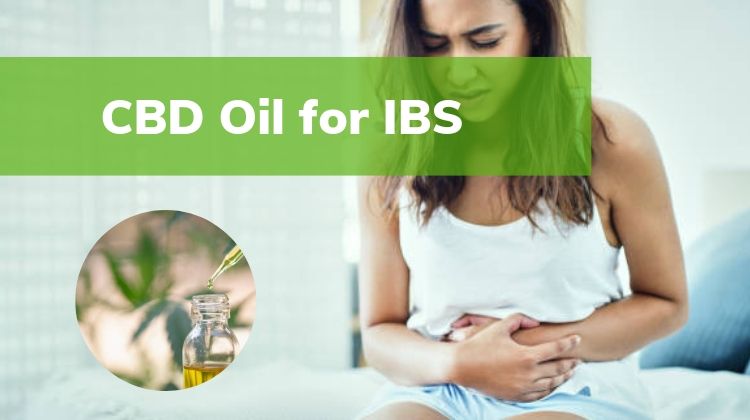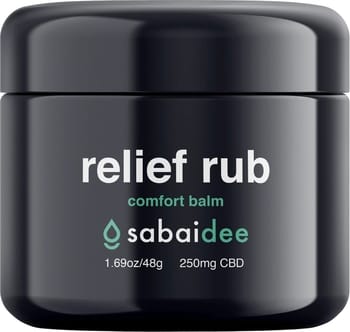What is Irritable Bowel Syndrome?
Irritable bowel syndrome (IBS) is a long-term disorder that affects the large intestine. If you don’t have IBS yourself, for sure you know somebody who does: it’s believed that 10-20% of adults in Western countries suffer from IBS. This makes IBS one of the most common conditions which patients use CBD to treat.
It’s characterized by gastrointestinal (GI) symptoms like cramping, bloating, abdominal pain, diarrhea, and constipation. These symptoms can range from uncomfortable to outright embarrassing.
Some of the risk factors for IBS include a previous GI infection, young age, anxiety, and depression. Other issues which may contribute including nutritional deficiencies, genetics and overgrowth of microorganisms in the intestine.
While the full causes of IBS remain unclear, some researchers have pointed to a dysfunction in the endocannabinoid system as a potential explanation. This means that treatment with cannabinoids like CBD could help to support normal function of the endocannabinoid system and improve your IBS symptoms. Read on to learn about the top 6 ways that CBD might help with your IBS.
Pain
Pain can be a distressing symptom of IBS, and CBD has been shown to be effective against a wide range of types of pain. Patient surveys have found that over 80% of patients report that cannabinoids improved their pain in inflammatory bowel diseases (IBDs) like IBS.
Inflammation and Immune Modulation
Scientists have proven that CBD is a powerful anti-inflammatory. Research on experimental models has shown that CBD can moderate the action of the immune system, thereby reducing inflammation in IBDs. Likewise, biopsies taken from human subjects showed similar results in patients treated with CBD.
Given the link between IBS and gut inflammation, researchers believe that CBD could be very effective as a treatment.
Anxiety and Depression
IBS is a complex disorder, and we know that, amongst other factors, anxiety and depression can play a big role in how the condition plays out.
CBD has generated huge interest in recent years when it comes to treating anxiety, stress, and depression. Scientists believe that CBD helps in a similar way to antidepressants, by working on the same serotonin receptor sites as common drugs like citalopram or fluoxetine.
Given the link between anxiety and persistence of symptoms in IBS, CBD could help by improving your anxiety or depression symptoms and thereby reducing the severity of your IBS.
Improved Bowel Movements
Researchers believe that one of the causes of IBS may be an increase in intestinal motility. In short, food passes too quickly through the intestine and this can cause changes in your toilet habits.
Scientists have demonstrated that, by moderating the effect of the neurotransmitter acetylcholine, CBD could help to slow intestinal motility. This means that CBD may help restore normal bowel movements in sufferers of IBS.
Given that these symptoms can be very embarrassing, CBD could help to restore your confidence to go about your life more normally, without always having to keep track of your distance from the nearest bathroom.
Reduction in Cramping
If you’ve experienced IBS, you’ll know that cramping can be one of the most uncomfortable symptoms. In the worst cases, abdominal cramps can be uncomfortable enough to force you to rest until the symptoms pass.
Antispasmodics have been used for decades as a treatment for IBS. Research has found that CBD has significant antispasmodic effect, which could help to reduce your cramping and help you to go about your daily activities in relative comfort.
If you’ve experienced IBS, you’ll know that cramping can be one of the most uncomfortable symptoms. In the worst cases, abdominal cramps can be uncomfortable enough to force you to rest until the symptoms pass.
The Importance of Holistic Management
By helping with intestinal motility, reducing inflammation, and improving pain symptoms, CBD may help improve your overall levels of discomfort caused by IBS.
While CBD can help manage several of the symptoms of IBS, it’s important to look at the big picture. IBS has been linked to problems like poor diet, stress, and mental health issues. This means that CBD is likely to be most effective for IBS when combined with a program of lifestyle changes. These could include dietary changes (like the FODMAP diet), exercise, and mediation.
Best CBD Oil for IBS
As with many conditions, most patients find that full-spectrum CBD oils are most effective for IBS. This is due to the action of the entourage effect, whereby the other beneficial compounds found in the cannabis plant combine to increase the medicinal effect of cannabinoids like CBD.
You’ll want to look for a product which is easy to take by mouth, so a good bet could be a CBD paste, CBD dropper oil, or CBD capsules.
CBD Oil Dosage for IBS - How Much to Take and When to Take It
Everyone is different, so it’s impossible to say what might be the most effective dosage of CBD. It’s important to remember that CBD can interact with some of your existing medications, so if you have any doubts make sure to discuss them with your doctor. However, CBD is safe and usually well tolerated.
While you should keep an eye out for any side effects, CBD is not known to cause any serious adverse effects in patients with IBS.
As with many treatments, most practitioners recommend a “low and slow” approach. This means that you should start with the lowest dosage available for your chosen form of CBD. You’ll want to take this dosage 2-3 times a day for the best effect.
After waiting for a few days to see how CBD affects you, it’s safe to adjust your dosage upwards, if necessary, until you achieve your desired level of symptom control.
Conclusion
IBS is a difficult disorder to live with, and researchers believe that the endocannabinoid system may play a role in developing this condition. CBD could help by rebalancing your endocannabinoid system and thereby improving your bowel movements, reducing pain and cramping, and treating anxiety and depression which are commonly associated with IBS.
Choose a CBD product which you can take by mouth for the best effect, and make sure to source your CBD products from a reputable supplier so you can be sure what you’re taking. Please let us know if you have any questions about treating IBS with CBD, and we’d love to hear any success stories if CBD works out well for you.

